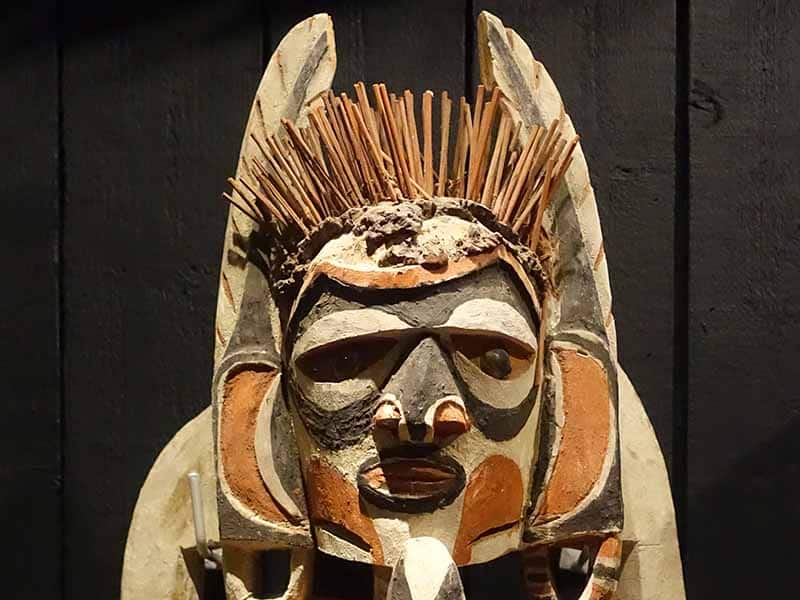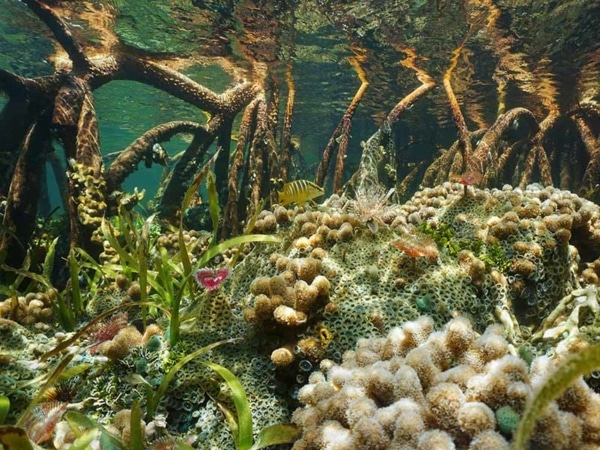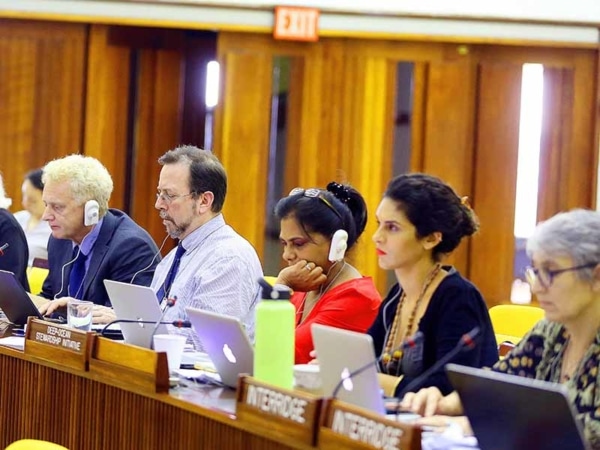Ocean: Research and Policy
If we want to slow down and ultimately reverse the key global drivers of biodiversity loss in the ocean, there is an urgent need to promote fundamental research and underlying, systemic changes in policy. Gaining funding and support for this type of work is challenging: this strand focuses support on research and policy areas in which small but effective organisations are carrying out vital, yet often overlooked and underfunded work. The key focal areas for this strand include the high seas, the deep ocean and fisheries subsidies.
The current system of governance for the vast area of ocean that is the high seas is inadequate. To protect marine biodiversity and reduce abuses at sea, a global biodiversity treaty for the ocean is urgently needed.
We promote complex but vital work to protect ocean biodiversity by:
Supporting the voice of civil society in high-level decision-making processes.
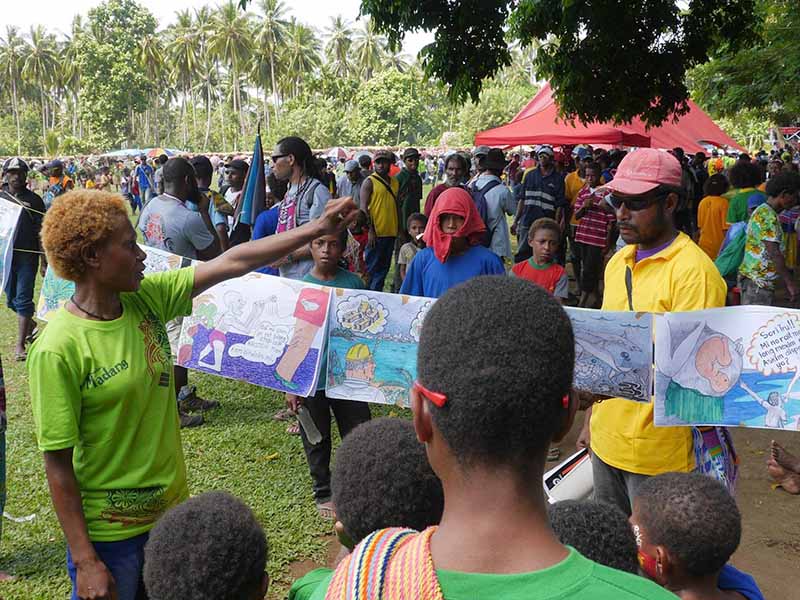
Civil society plays a key role in holding decision-makers to account at local, national and international levels. It is vital that this voice is loud, but also coordinated, strategic, and inclusive, to ensure that the most important messages are delivered effectively.
Supporting policy change and implementation.
While policy ‘wins’ are welcome, without continued pressure from civil society they can often be ineffective. We therefore specifically support implementation alongside policy change.
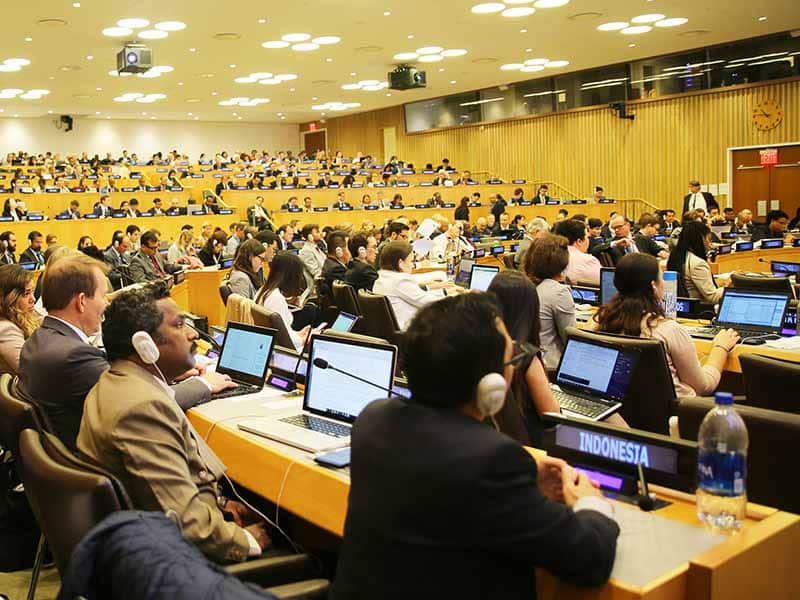
Supporting research and increased transparency within management systems.
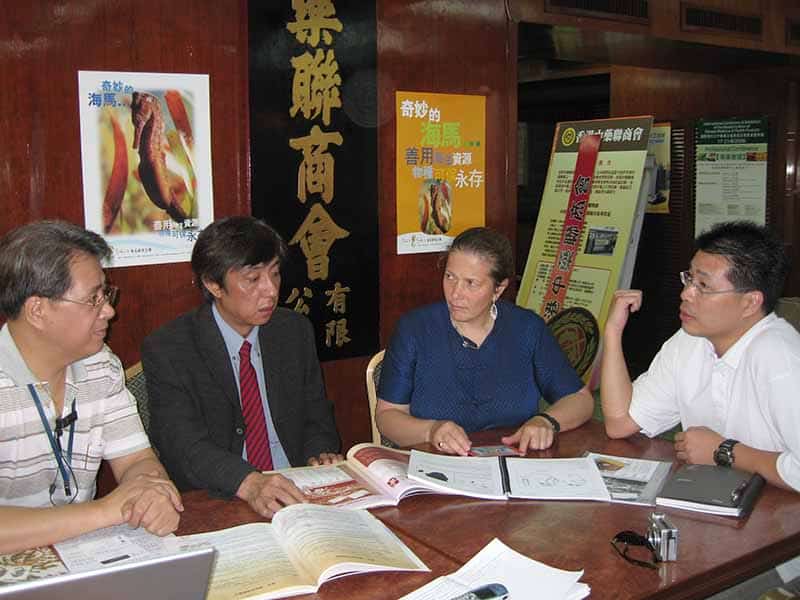
We support our partners to carry out the research needed to back up effective campaigning and to push for transparency and inclusivity within decision-making spaces.
Images (L to R): Bismarck Ramu Group; IISD/ENB | Francis Dejon; IISD/ENB | Francis Dejon; Heather Koldewey/Project Seahorse
Working together for better High Seas protection
Partner Profile: The High Seas Alliance
The High Seas Alliance is a coalition of 35 non-governmental conservation organisations as well as the International Union for Conservation of Nature (IUCN). It has been using its expertise in policy, advocacy, and communications to lobby for a high seas biodiversity treaty that has the ability to enforce strong conservation measures. The HSA has been instrumental in getting us to this point and is crucial to delivering a treaty with impact. It has consistently strategically leveraged the capacity of its member organisations to execute an effective and powerful campaign.
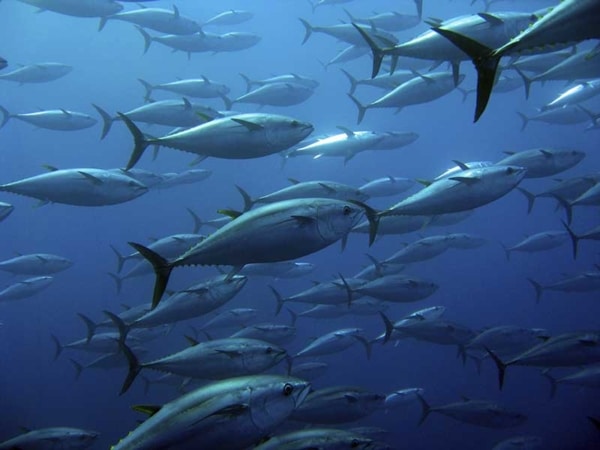
School of tuna: Shutterstock
School of tuna. Image: Shutterstock
“The ocean is not meant to be a thing we use or a place where we extract resources or dump waste. It is a vast habitat that we should leave alone or, better still, protect and help to flourish. Less meant to fill our wallets or stomachs, the ocean is an opportunity to expand our humanity, foster biodiversity, and prove our ability to live in balance with the rest of the planet’s occupants.”
– Ian Urbina, journalist and author of The Outlaw Ocean

